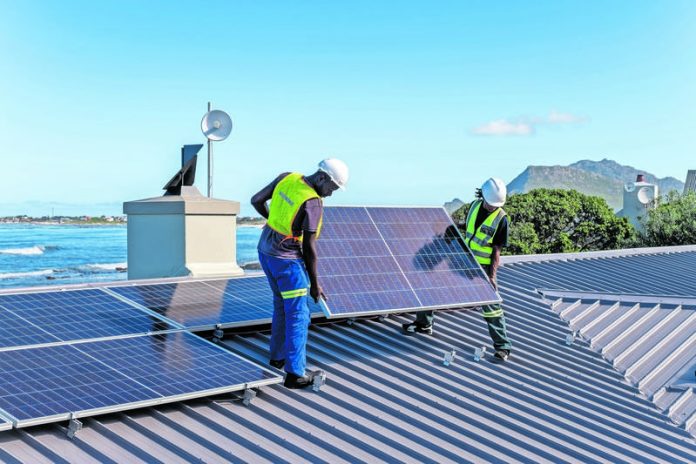The best way to get people to electrify everything might be getting them to electrify something — anything at all.
That’s because those who have already dipped their toes into home electrification are more likely to dive into additional projects, according to a new survey that could help shape electrification programs around the country.
The survey, released on Wednesday by the American Council for an Energy-Efficient Economy (ACEEE), gathered responses from 1,801 homeowners and renters about the fuels they use to heat and cook at home, and why they might switch from powering those activities with gas or oil to electricity instead. The sample represented the U.S. population in terms of age, income, gender, homeownership, geographic distribution, home energy use, and political affiliation, according to ACEEE.
The ACEEE team uncovered a wealth of insights: People who had childhood experience with electric systems were more likely to want to transition to electric appliances, and those who believe in climate change were nearly twice as likely to want to make the switch. But among the most striking findings was that people who already own electric lawn equipment and solar panels were more interested in electrifying other parts of their home — namely, their heating, water heating, and cooking — than non-owners. And sometimes by a gaping margin.
Participants who have electric lawn equipment were 84% more likely to want to electrify their cooking, 33% more likely to want to electrify their home heating, and 32% more likely to want to electrify their water heating than someone without electric outdoor power tools. Rooftop solar owners (of either photovoltaic panels or solar water heaters) also showed slightly bigger boosts in the desire to electrify. For example, they were 112% more likely to be interested in switching to electrified cooking. (Some of the results were on the edge of statistical significance, but close enough that ACEEE still called them.)
The survey analysis tested for correlation — not causation — and it could be that many of these likelier-to-electrify respondents had already planned to ditch fossil fuels before they bought solar panels or battery-powered lawn equipment.
But the authors think there are a few reasons why having a partially electrified home may convince people to electrify more widely. With rooftop solar owners, the incentive could well be economic. If you’re generating your own electricity, it’s more worthwhile to switch to appliances that can use it than to pay a utility for fossil fuel.
Get Caught Up
Virtual event: Want to electrify your home? These experts can help
+ more stories
Subscribe to our newsletter
Sign up to get Canary’s daily newsletter and stay on top of our latest headlines.
Your email
By signing up you agree to our User Agreement and Privacy Policy & Cookie Statement
For both solar and electric lawn equipment owners, another reason could be because they learned about the benefits of electrification through firsthand experience. That close contact could make them more likely to want to adopt other electric equipment in their lives, said Reuven Sussman, lead author of the report and director of ACEEE’s behavior, health, and human dimensions program.
“Providing consumers with hands-on experience…can act as a gateway to additional electrification measures,” Sussman noted. ?“If you’re looking to increase the number of people that have all-electric homes…then encouraging this first step of [adopting] solar or electric lawn mowers might be an effective way to do that.”
For the survey analysis, Sussman said he examined the effect of only these two electrification steps, which leaves open the possibility that EVs, heat pumps, heat-pump water heaters, and induction cooktops could also be potential gateways to further electrification for consumers. It’s a question he’d like to pursue in future research.
Hands-on experiences can make a huge difference in the electrification sphere, Sussman pointed out. Research in Germany has shown that people who have a three-month trial with an EV are less likely to have range anxiety and more likely to want to purchase one. By trying an EV before buying, ?“you start perceiving benefits you didn’t think of,” he said — like saving time and money by no longer needing to go to the gas station.
Generous federal incentives for rooftop solar are already flowing or will soon. Residential solar panels are now available at a steep discount, thanks to the 2022 Inflation Reduction Act. New solar owners can claim an uncapped 30% federal tax credit. And the Biden administration’s historic Solar for All initiative is infusing $7 billion into programs around the country to help low-income families access the benefits of solar.
In the pursuit of much cleaner air and lungs, a smattering of state and local programs are encouraging customers to upgrade to electric landscape equipment. For example, a new state law allows Coloradans to enjoy a 30% discount on electric lawn mowers, leaf blowers, trimmers, and snowblowers at participating retailers statewide. And Washington, D.C.’s Sustainable Energy Utility offers $75 off residential electric push lawn mowers, which can go a long way to covering the premium over comparable gas equipment.
Incentive programs like these — and the abundance of federal and state-level programs for electrifying other appliances, like heating — could help convince people to embrace an electric option for the first time. As ACEEE’s analysis indicates, that might prove to be a stepping stone to ditching fossil fuels completely.






